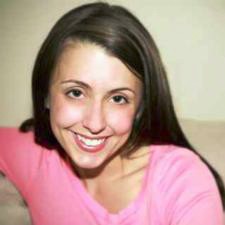Speaker breaks stigma

Courtesy Photo / gvsu.edu Colleen Coffeey, head of The Heard program at Active
Nov 22, 2010
Colleen Coffey, a leader of the Heard Program of Active Minds, prompted an audience last Monday to shout out common impressions of mental health issues.
The audience, comprised of sponsors Alpha Sigma Tau and Active Minds as well as other Greek organizations, compiled a list ranging from crazy and uncontrollable crying to stigma. Coffey explained there are three approaches to break through these false impressions: protest, education and contact.
Through protest, she would scold someone for saying a person is crazy. She could also try to educate them with a slew of statistics. The best approach, Coffey said, is contact through the creation of interpersonal relationships.
“What is going to teach you is to tell my story,” she said in her Nashville, Tenn., drawl.
Coffey remembered at six years old crying as she stared out the window. She sensed there was something wrong but she could not stop it, she said. She repressed these feelings at a young age, but it became impossible to hide them when she hit puberty in eighth grade.
She acted out by cursing at teachers, getting into fights and stealing her father’s car and $80 to drive to St. Louis, Mo., to start a new life.
After her parents sent her to an all-girls boarding school, she asserted control over her body. She worked at being thin, she said. While Coffey struggled with bulimia, her parents sent her to a mental hospital.
“After a month, I left there not cured, but better,” Coffey said.
She flourished with supportive friends at Hillsboro High School and was crowned homecoming queen. She also stopped taking her medications for a brief time.
“God forbid anyone find out the Queen of the Burros had mental health issues,” she said.
In college and graduate school, Coffey was actively involved in the Alpha Sigma Tau sorority, but she still experienced the unexplainable loneliness and stress. To cope with the stress, she structured a strict workout and eating plan.
While in this structured lifestyle, Coffey’s sorority sister asked her to be there when her baby was born. The first thought that occurred to Coffey was how she could continue her routine if she were to go. During her friend’s long labor, Coffey snuck out to go to the YMCA, but her friend’s mother called her back. She missed the delivery by seconds.
“I missed something important because I was too preoccupied to really be there,” Coffey said.
After this realization, Coffey enrolled in a treatment program. She continues to seek help in coping with the stress in her life. She encouraged the audience to seek help and to offer help to those who may need it.
Rike Habbel, a resident assistant in North C Living Center, said Coffey’s message would be helpful to include in RA training. RAs are trained in what to do to help people cope with mental health issues, but she found it helpful to hear about the personal struggle. The personal nature of it would help her deduce how best to help someone going through a situation similar to Coffey’s, she said.
Grand Valley State University’s chapter of Active Minds, an advocacy group aimed to dissipate the stigma attached to mental illness, schedules speakers such as Coffey to raise awareness. The group also works closely with the counseling center, said Ariana Herrera, a member of Active Minds.
“We lead by example so students know someone is always there for them,” she said.





















